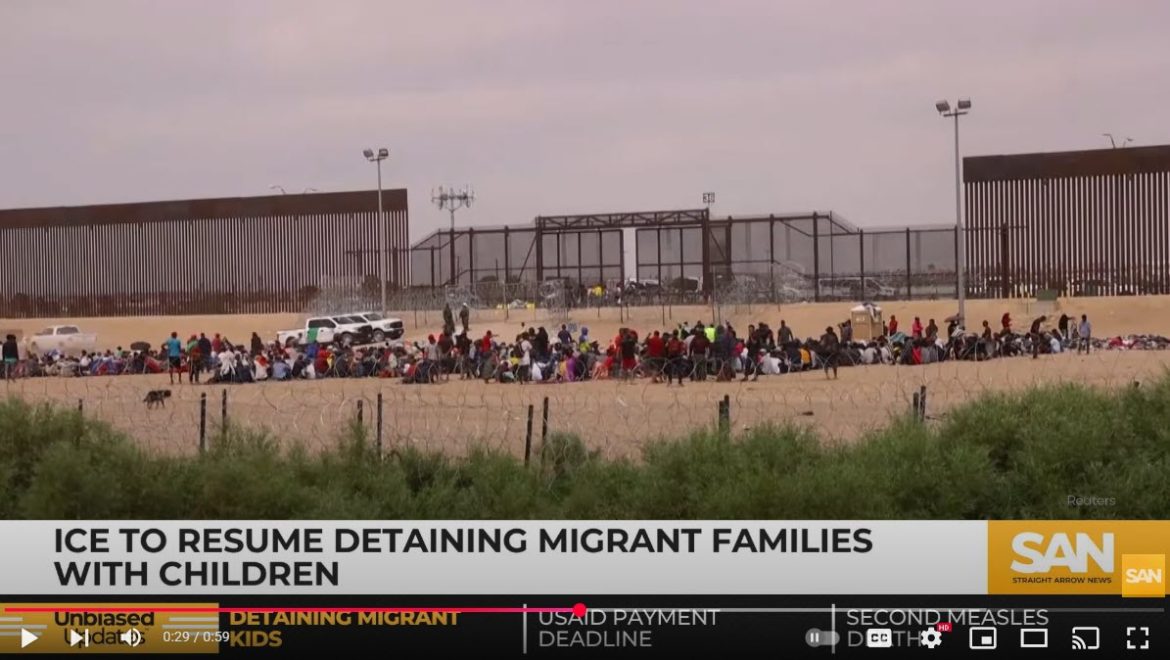The Trump administration has reinstated the practice of detaining immigrant families, marking a significant shift in U.S. immigration policy. This move comes as part of a broader strategy to intensify immigration enforcement and address the increasing number of unauthorized border crossings.
Last week, the administration reopened two detention centers in Texas, specifically the Karnes County Residential Center near San Antonio and the South Texas Family Residential Center in Dilley. These facilities, previously closed under the Biden administration, are now operational and have begun housing families with children as young as one year old. The Karnes facility, managed by the private prison company Geo Group, has a capacity of 1,328 individuals and operates under a federal contract valued at $79 million for its first year. Similarly, CoreCivic has secured a contract with Immigration and Customs Enforcement (ICE) to detain families at the Dilley center, which can accommodate up to 2,400 people.
The reinstatement of family detentions has sparked considerable concern among immigrant advocacy groups and human rights organizations. Critics argue that detaining families, particularly young children, can lead to adverse physical and mental health outcomes. They cite past instances where detained children experienced health issues, emotional distress, and developmental challenges. The American Academy of Pediatrics has previously warned against the practice, stating that even brief detention can cause psychological trauma and long-term mental health risks for children.
Legal experts also question the policy’s alignment with existing legal frameworks. The 1997 Flores Settlement Agreement mandates that immigrant children should not be held in unlicensed, secure facilities for more than 20 days. However, the current administration seeks to modify this agreement to allow for longer detention periods, arguing that it would enable families to remain together while their immigration cases are processed. This proposal has been met with legal challenges, with opponents asserting that prolonged detention violates children’s rights and fails to consider less restrictive alternatives.
The policy shift occurs amid a notable increase in immigration enforcement actions. In February 2025, U.S. immigration authorities arrested more individuals than in any month over the past seven years. This surge follows President Trump’s directives for “mass deportations” and the suspension of humanitarian relief programs established during the previous administration. Detention centers are reportedly operating at full capacity, with approximately 47,600 individuals currently detained. Notably, there has been a 221% rise in the detention of immigrants without criminal convictions compared to previous months, raising concerns about the broad application of enforcement measures.
The administration’s decision to resume family detentions has reignited debates over the ethical and legal implications of such practices. Advocates urge the government to consider alternative approaches that prioritize the well-being of children and uphold the nation’s commitment to human rights. As the situation evolves, the impact of these policies on affected families and the broader immigration system remains a critical area of focus.
Sources:
- Trump administration resumes detention of immigrant families after Biden-era pause
- US arrests more immigrants in February 2025 than any month in last seven years
- Trump administration family separation policy
- Reno v. Flores
- Migrant detentions under the first Trump administration



